She watched the horizon. She did not stop looking to it.
For months, she had helped her child learn to spread his wings and fly. Her barn was filled with insane contraptions that mimicked wing stretches, wing lifting, and gliding motions. As a mere human, inventing machines was the only way she could teach her child.
The first time they tried to fly, all she saw was her child falling off the barn. She reached the edge and looked down to see him lifting his head from the pile of hay where he’d landed. He shook it back and forth trying to get hay out of his scales. It was a funny moment, one of many.
There were also moments of great frustration. Her limited knowledge of the mechanics of flight made the process difficult. The fails kept piling up until the morning when a large hawk appeared over the cliff that was out beyond the boundaries of her property.
Together, they watched the bird soar and glide over the land.
Her child began to walk toward it. She wanted to stop him, so that she could be the reason he learned. But, no, she couldn’t.
Smiling, she waved him off to follow the hawk. Within a day, she saw her child fly in the sky.
They both rejoiced, each in their way.
Now she was waiting – staring at the distant horizon, waiting for her child to return home. And praying that he would. Towards the horizon…
She knew the tradition, of course. Once those who had wings had learned to fly, they traveled to the island of Draflo. There, they would receive more magic, absorb more knowledge.
Her aging mother and her younger brother had come to see her child off, sharing her delight in the moment he had achieved true flight. But they were not his mother. They did not join in her vigil by the cliff.
The weather turned.
A fierce wind came, bringing with it dark clouds. Her mother left the shelter of their house to beseech her with gentle words: Come inside. Rest. The older woman could feel it in her bones, she said, deep cold and heavy rain were not long off.
She only shook her head, no.
The rain did come, and it was cold, and it was heavy.
Her clothes were soaked. Her hair stuck to her neck and back, the wet weight of it chilling her even further.
Still, she stayed on the cliff.
Her brother came to join her, imploring her to go inside. She would surely die, if she remained at watch.
Another storm came, larger than the first, with winds strong enough that part of the barn was damaged. For a moment, she panicked, concerned for the machines, only to remember that they were no longer needed.
Her brother changed his approach, becoming angry with her. He argued that the child was not worth the price of her life. He insisted it wasn’t even truly hers.
She spoke no words aloud.
But in her head, she was seething: Not hers? Of course the child was hers. Did they bear the same blood? No. But he was hers nonetheless.
The storm that raged around them now was just like the one that had brought her child in the first place.
She had been running, chasing the killer of her husband and infant son. The storm that hid the murderer led her to the cave that sheltered her new child.
He was near death when she found him. His breath was weak and cold. There was no meat to him. His scales were falling off.
Maternal instinct kicked in, and she knew.
She knew.
He was hers.
Her brother turned to leave her, and she let him go.
She caught sight of an object coming over the cliff. She squinted her eyes and lifted her hand to shield them from the rain.
It was him. She was certain of it.
She ran toward the cliff-edge to meet him, but the lightning came closer, the strikes coming more frequently.
She did not fear it.
All that mattered was that her child was coming home.
It was the last bolt that hit him. It was bright and fast. Her scream boomed over the thunder.
Not her child!
She searched the sky: nothing. She searched the sea: nothing.
Her sobs racked through her.
Not again.
No!
Not again!
When the earth became loose, she did not step back from the edge. She let herself fall.
The air scoured her skin as she plummeted toward rocky shore below, but she embraced the pain. Another child was gone. Physical pain couldn’t touch maternal grief.
She never felt the rocks or freezing water. She only felt warmth and a pulsating wind. Soon, she was back at the cliff-side, surrounded by scales, and wrapped in leathery wings.
Opening her eyes, she met his: black as ebony, with tiny gold flecks.
She knew those eyes; they belonged to her child.
She smiled, and took stock of him. He was different somehow… Stronger, maybe? And when she took a closer look at his scales she noticed blue lights darting across them.
She put her finger in the path of the light, and felt tingles down her arm.
Lightning.
Her child was not only flying, but he had lightning coursing through him.
Her child.
Her dragon son.
About the author, Selena Taylor
 Selena Taylor is a wife, a mother, and a woman who strives to tell the many stories that occupy her mind. She is active in the Rhett & Link fandom and appreciates dark humor. She and her family live in Illinois, where she takes every opportunity to lose herself under the stars and let her imagination run wild. For more from Selena, check her out on Tumblr or follow her on Twitter.
Selena Taylor is a wife, a mother, and a woman who strives to tell the many stories that occupy her mind. She is active in the Rhett & Link fandom and appreciates dark humor. She and her family live in Illinois, where she takes every opportunity to lose herself under the stars and let her imagination run wild. For more from Selena, check her out on Tumblr or follow her on Twitter.

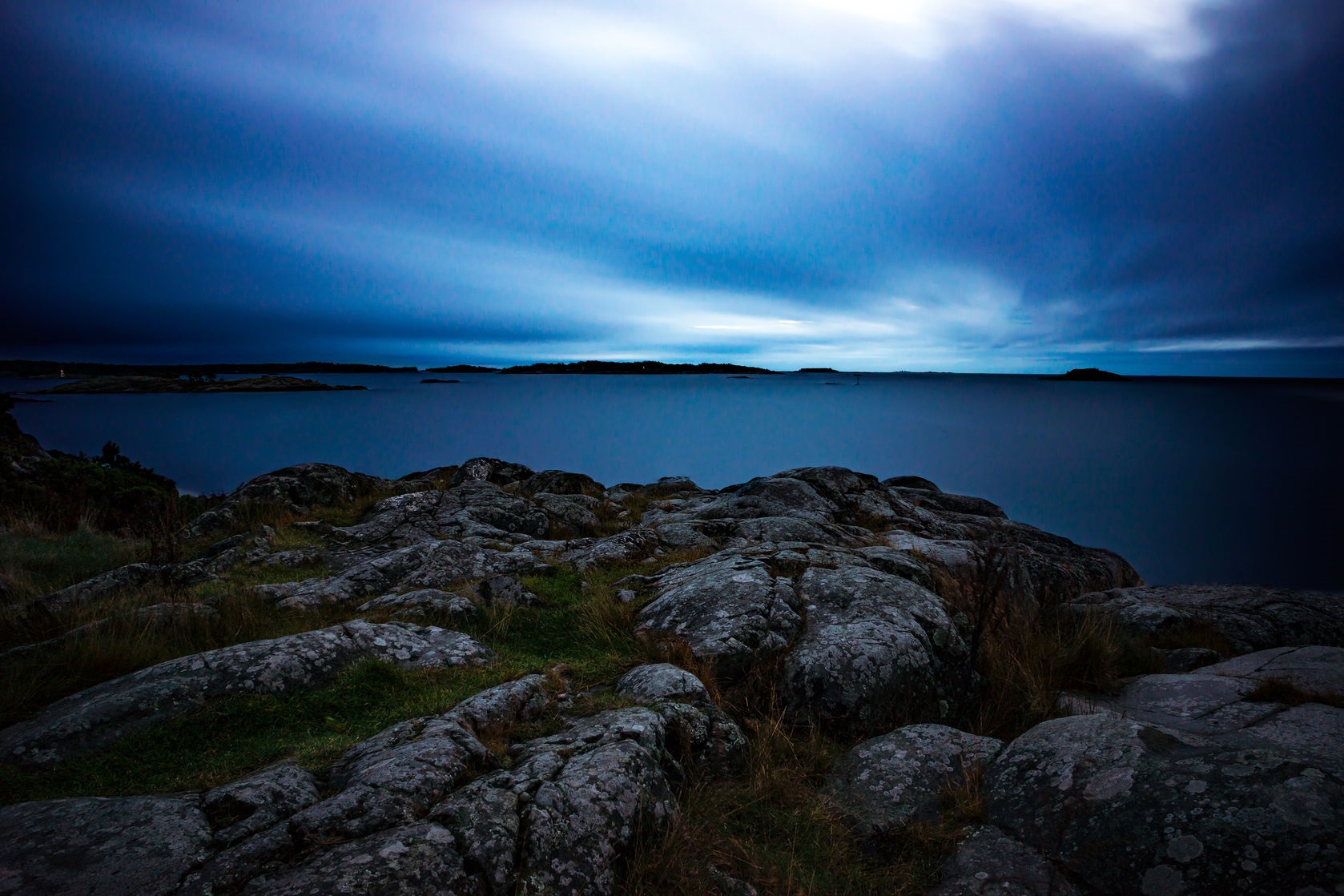
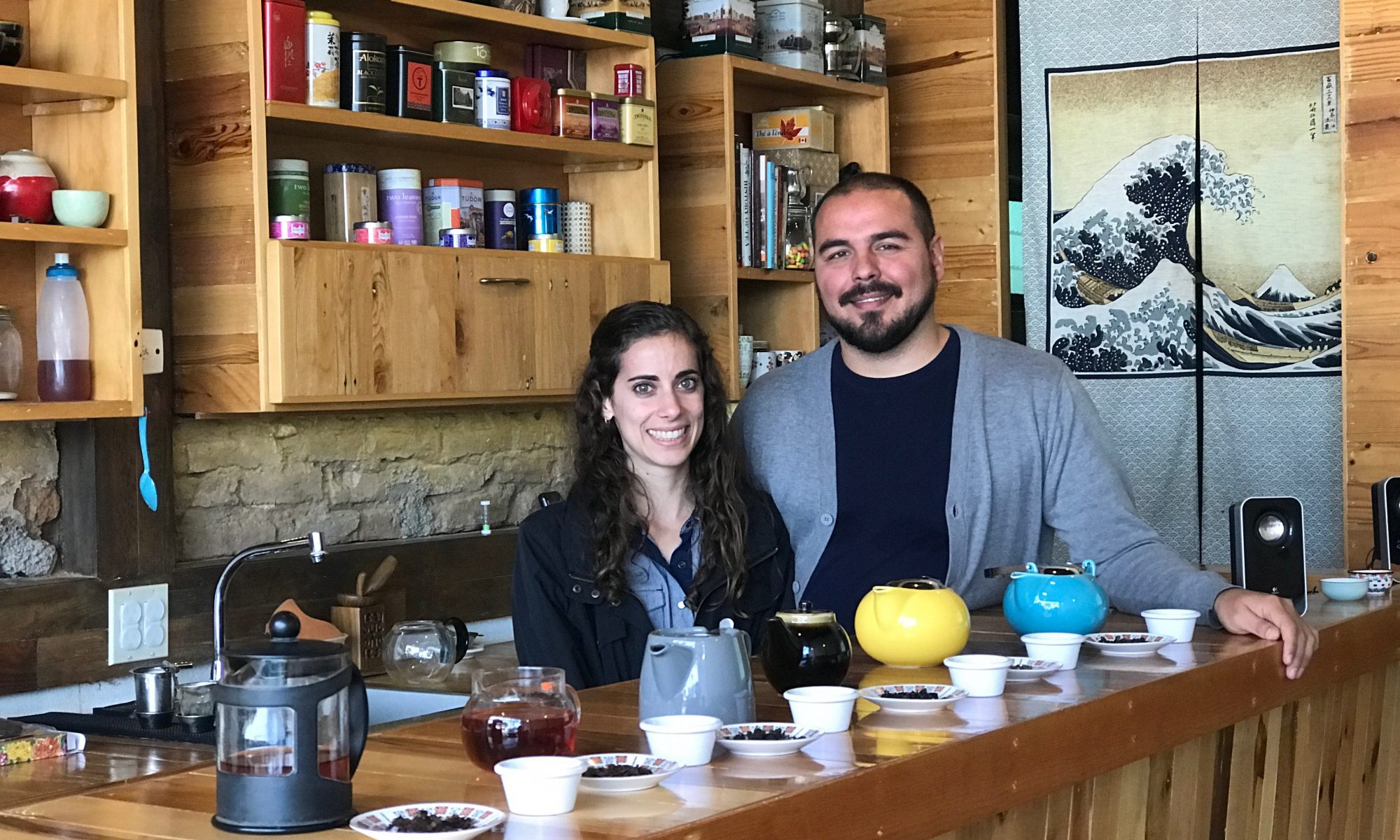

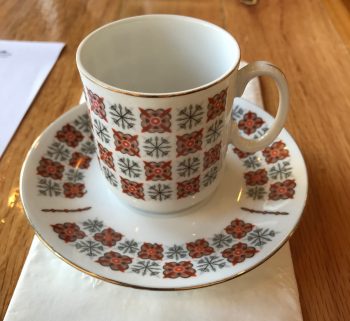 ecember 26th, 2016. It’s a chilly day in La Paz, BCS, Mexico – chilly for the tropics, anyway – about 65 degrees – and sky is overcast. I follow my mother and her friend Mary into a tiny tea shop in the heart of town, near where my parents, who retired to Baja Sur just after the millennium turned, go every weekend for breakfast and the farmers’ market.
ecember 26th, 2016. It’s a chilly day in La Paz, BCS, Mexico – chilly for the tropics, anyway – about 65 degrees – and sky is overcast. I follow my mother and her friend Mary into a tiny tea shop in the heart of town, near where my parents, who retired to Baja Sur just after the millennium turned, go every weekend for breakfast and the farmers’ market.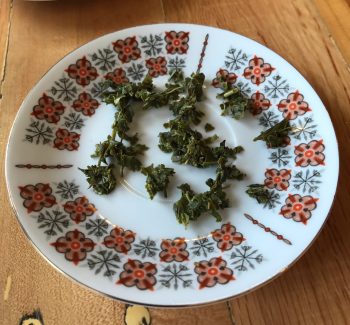 The presentation takes only ten or fifteen minutes. Hector begins by sharing that tea was originally brewed for medicinal purposes, and gradually became used as the beverage it is today. While he speaks, Inez is busy behind the counter, prepping things for the tasting session to follow. Hector is such a captivating speaker that we barely notice her bustling.
The presentation takes only ten or fifteen minutes. Hector begins by sharing that tea was originally brewed for medicinal purposes, and gradually became used as the beverage it is today. While he speaks, Inez is busy behind the counter, prepping things for the tasting session to follow. Hector is such a captivating speaker that we barely notice her bustling. We are presented with a white tea, first, and it is so pale, it might as well be just hot water, but when we sip from our lovely little cups, we are all awestruck buy the nuanced flavor. Hector tells us it’s appropriate to slurp a little when you taste tea, because that brings in air, and lets the aroma work with the flavor.
We are presented with a white tea, first, and it is so pale, it might as well be just hot water, but when we sip from our lovely little cups, we are all awestruck buy the nuanced flavor. Hector tells us it’s appropriate to slurp a little when you taste tea, because that brings in air, and lets the aroma work with the flavor. As we progress through the spectrum of tea, one of the things that we all comment upon is the incredibly short steeping time on all of these different varieties. Thirty seconds for the white teas, a minute or two for oolong, which is toward the middle in terms of strength.
As we progress through the spectrum of tea, one of the things that we all comment upon is the incredibly short steeping time on all of these different varieties. Thirty seconds for the white teas, a minute or two for oolong, which is toward the middle in terms of strength. lemon biscuits meant to serve as palate cleansers between cups. After the first two cups, Inez also places a large bowl on the table, so that if we don’t wish to finish any given cup of tea, we can dump it, in a slightly more refined version of a wine tasting (no spitting). No one uses it.
lemon biscuits meant to serve as palate cleansers between cups. After the first two cups, Inez also places a large bowl on the table, so that if we don’t wish to finish any given cup of tea, we can dump it, in a slightly more refined version of a wine tasting (no spitting). No one uses it. The last tea we sample is the one we are most familiar with: Earl Grey. Hector explains that English-style black teas often include essential oils (in this case, bergamot) to alter the flavor, or soften the bitterness or astringency.
The last tea we sample is the one we are most familiar with: Earl Grey. Hector explains that English-style black teas often include essential oils (in this case, bergamot) to alter the flavor, or soften the bitterness or astringency. Instead of overwhelming floral scents, there’s just enough of the essential oil to enhance the tea. Again, Hector comments on water temperature and steeping time. He also cautions us that these leaves are not to be re-used. In fact, this is the only tea of all the varietals we’ve been introduced to that Inez has made in a tea infuser – the glass pots made by Bodum that almost all tea-drinkers probably possess.
Instead of overwhelming floral scents, there’s just enough of the essential oil to enhance the tea. Again, Hector comments on water temperature and steeping time. He also cautions us that these leaves are not to be re-used. In fact, this is the only tea of all the varietals we’ve been introduced to that Inez has made in a tea infuser – the glass pots made by Bodum that almost all tea-drinkers probably possess.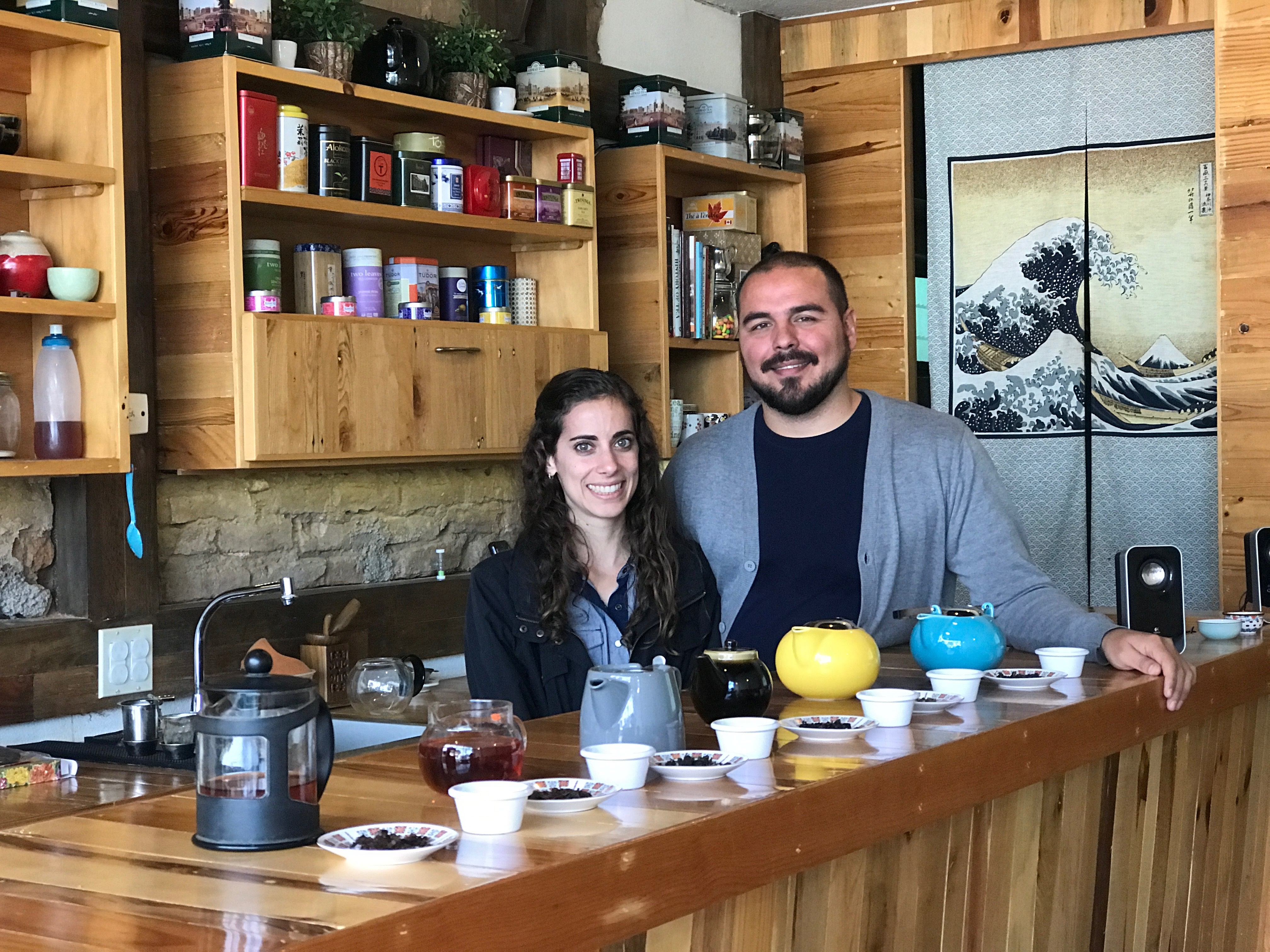
 Melissa is a writer, voice actor, podcaster, itinerant musician, voracious reader, and collector of hats and rescue dogs. She is the author of
Melissa is a writer, voice actor, podcaster, itinerant musician, voracious reader, and collector of hats and rescue dogs. She is the author of 

 So no resolutions. Not even a new calendar. And anyway, after 60 years I recognize the veracity of Thomas Moore’s assertion: Resolutions are heavy, self-imposed expectations, all too easily cast aside, leaving the resolver feeling guilty and disappointed.
So no resolutions. Not even a new calendar. And anyway, after 60 years I recognize the veracity of Thomas Moore’s assertion: Resolutions are heavy, self-imposed expectations, all too easily cast aside, leaving the resolver feeling guilty and disappointed.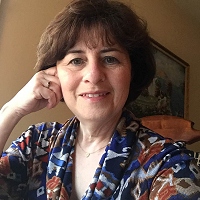 Becca Rowan lives in Northville, Michigan with her husband and their two dogs. She is the author of
Becca Rowan lives in Northville, Michigan with her husband and their two dogs. She is the author of 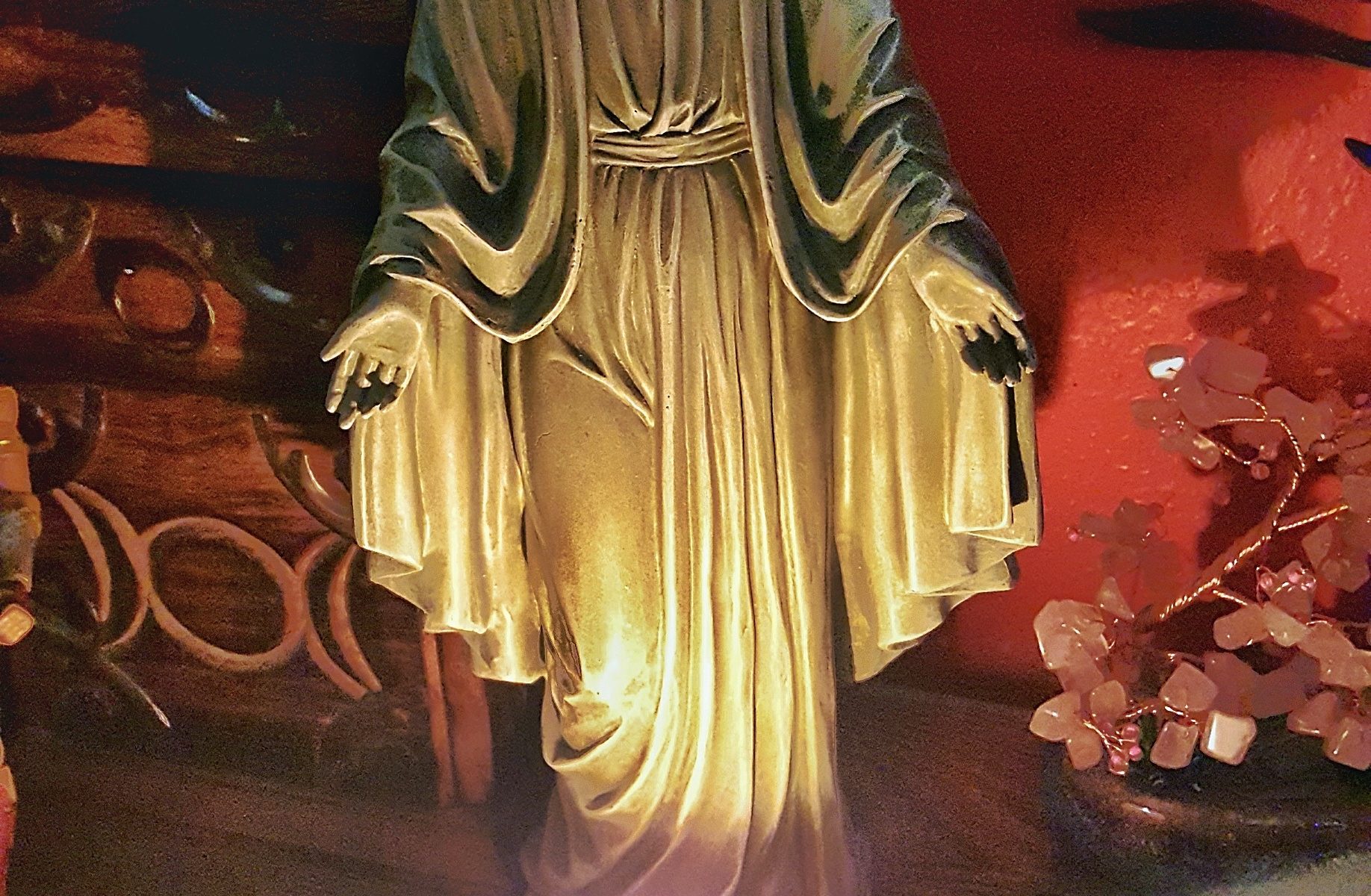
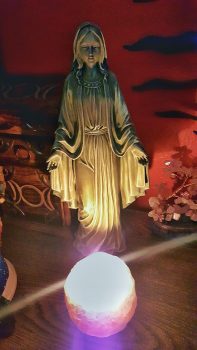 This one meant past, that one was the present, and this one was the future. And then I did the reading and it worked!
This one meant past, that one was the present, and this one was the future. And then I did the reading and it worked!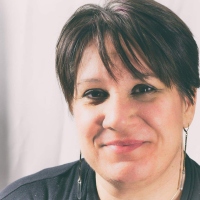


 A.R. Hadley writes imperfectly perfect sentences by the light of her iPhone.
A.R. Hadley writes imperfectly perfect sentences by the light of her iPhone.

 Christine Mason Miller is an author and artist who has been inspiring others to create a meaningful life since 1995. Signed copies of her memoir, Moving Water, are now available for pre-order at
Christine Mason Miller is an author and artist who has been inspiring others to create a meaningful life since 1995. Signed copies of her memoir, Moving Water, are now available for pre-order at 
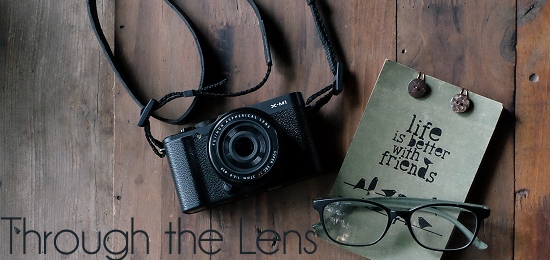
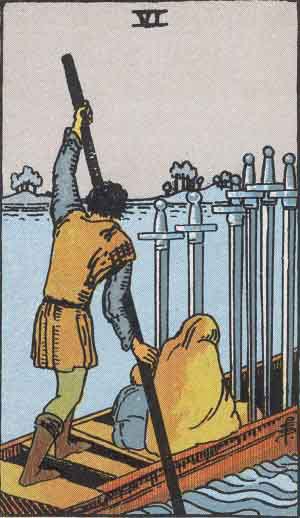 6 of Swords. Not a great card, but certainly an understandable one.
6 of Swords. Not a great card, but certainly an understandable one. The Hierophant rests more on logic and structure than emotion.
The Hierophant rests more on logic and structure than emotion.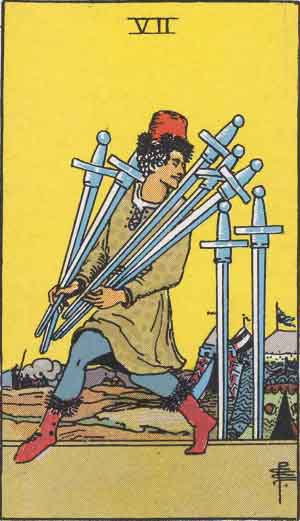 The 7 of Swords: I associate this card with organized chaos.
The 7 of Swords: I associate this card with organized chaos.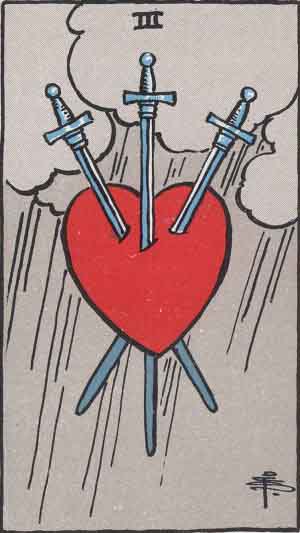 The 3 of Swords: Maybe it’s a little heavy-handed?
The 3 of Swords: Maybe it’s a little heavy-handed?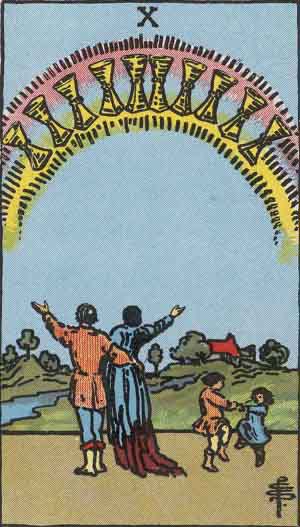 This 10 of Cups is a triumphant conclusion card.
This 10 of Cups is a triumphant conclusion card. Courtney Weber is a Priestess, author, Tarot advisor, and activist. She is the author of the newly released
Courtney Weber is a Priestess, author, Tarot advisor, and activist. She is the author of the newly released 

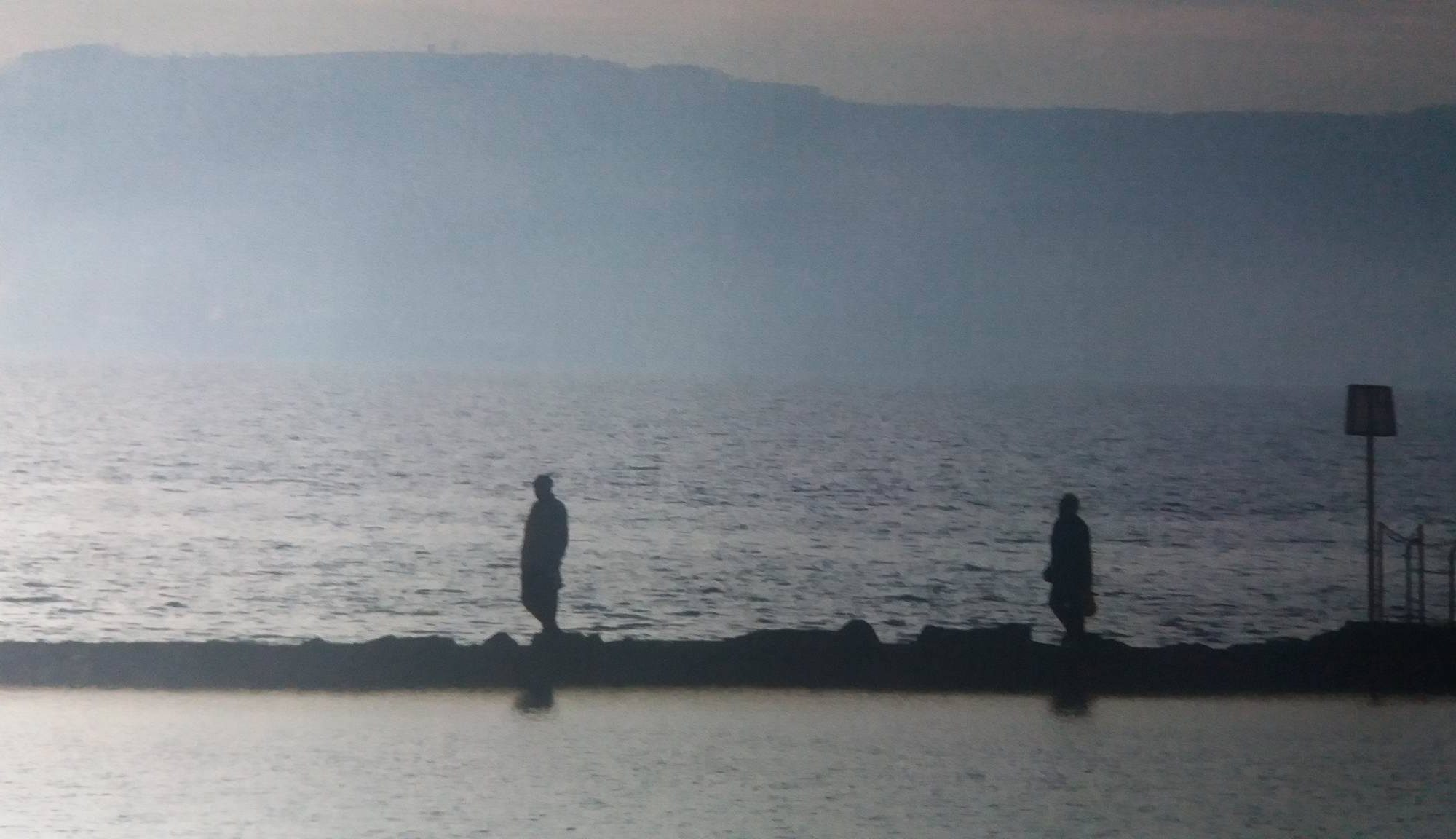







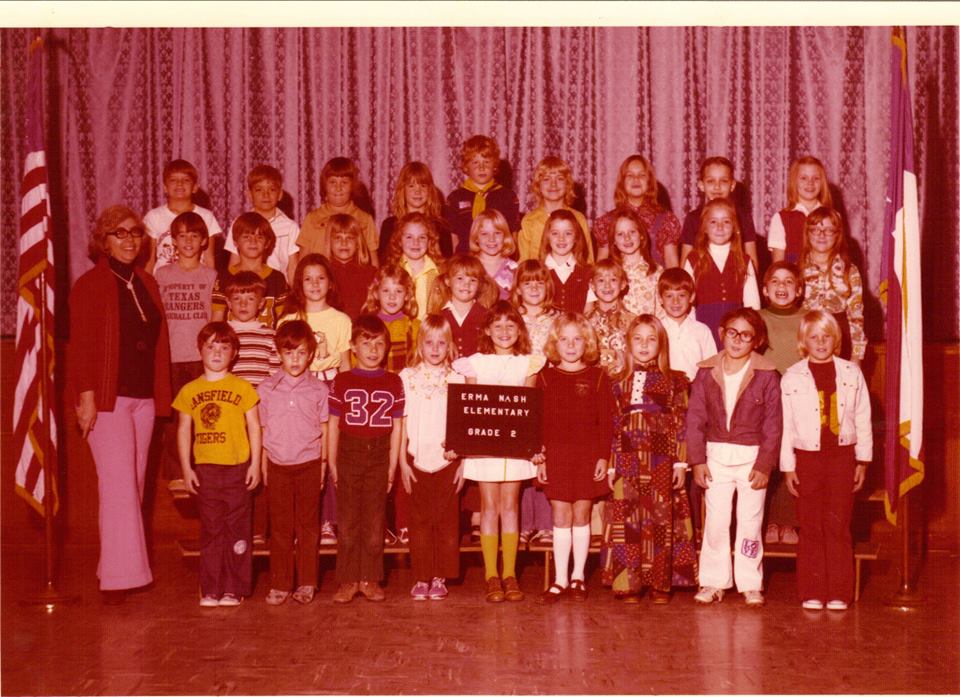
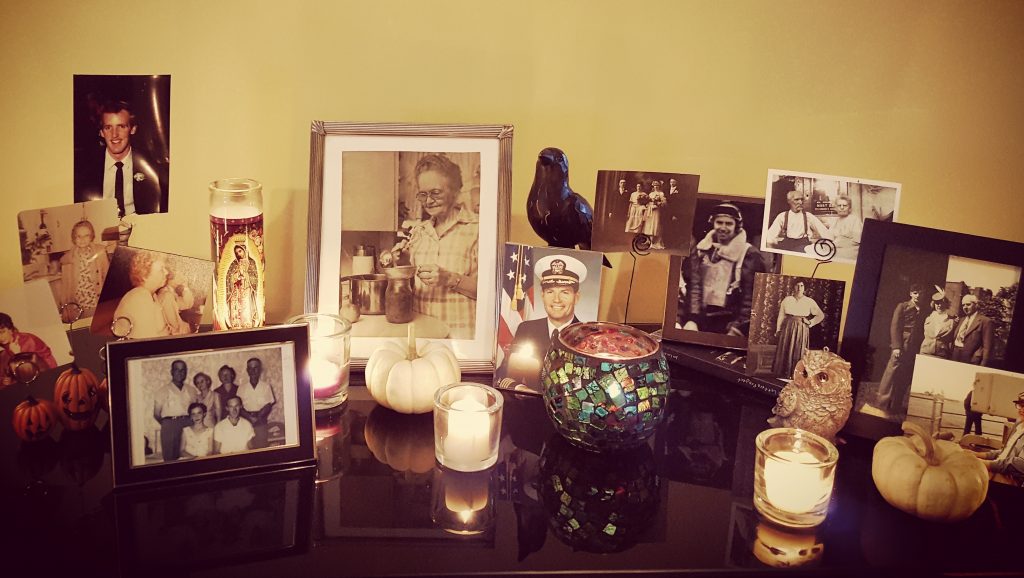
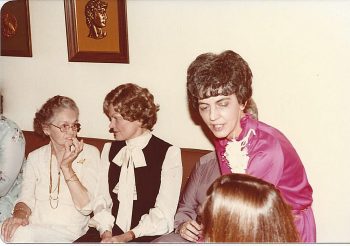 the woman who seemed to despise the woman little Debra grew into.
the woman who seemed to despise the woman little Debra grew into.
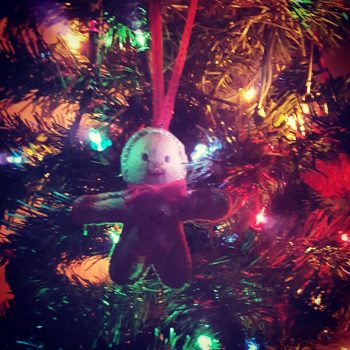 critical to extending these tenuous feelings.
critical to extending these tenuous feelings.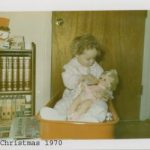 Debra is a life coach and the Editor in Chief of Modern Creative Life. She is the author of three books, including the recently released Clearing Soul Clutter: Creating Your Vision.
Debra is a life coach and the Editor in Chief of Modern Creative Life. She is the author of three books, including the recently released Clearing Soul Clutter: Creating Your Vision.